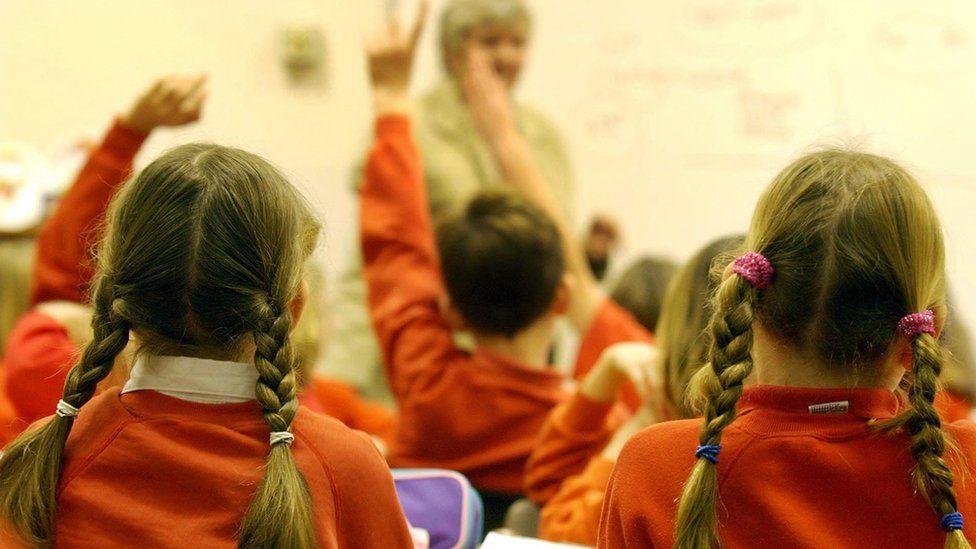MPs want sex and relationship education taught in all schools
- Published

Four key Commons committees are asking the education secretary to make Personal, Social, Health and Economic (PSHE) education compulsory in schools.
The education, health, home affairs and business committee chairmen want PSHE, which covers sex education, made statutory in primaries and secondaries.
In a letter to Nicky Morgan, they express concern at her failure to respond to various committees' calls.
The government is working on a way to achieve high-quality PSHE for all.
It published guidelines on sex and relationship education (SRE) in 2015.
While PSHE education is not part of the statutory national curriculum, which means there is no national programme of study for the subject, the Department for Education say schools should teach it to pupils.
'Express disappointment'
Schools are also required to have a policy on sex and relationship education which is made available to parents, and for inspection, which must set out how this is provided, monitored and evaluated..
It must also include information about parents' right to withdraw their children from sex education classes.
The chairmen's letter said: "We write to express our disappointment with your response so far to the issue of the statutory status for PSHE and sex and relationships education in schools.
"PSHE is a crucial part of preparing young people for life. It can provide them with the knowledge and confidence to make decisions which affect their health, well-being and relationships, now and in the future.
"It can develop the skills and attributes needed to secure employment and can help protect young people from abuse in many forms."
In February 2015, the education committee called for the DfE to "develop a work plan for introducing age-appropriate PSHE and SRE as statutory subjects in primary and secondary schools, setting out its strategy for improving the supply of teachers able to deliver this subject and a timetable for achieving this".
Violence against women
In January 2015, the Joint Committee on Human Rights said it would be better if schools were "required broadly to teach the same curriculum in PSHE" and that this should include issues in relation to violence against women and girls.
Six months earlier, the Home Affairs Committee called for PSHE, covering education about female genital mutilation in high prevalence areas, to be made compulsory.
And both the Children's Commissioner for England and the Chief Medical Officer made their own calls to make the subject statutory.
A Department for Education spokesman said it wanted all young people to leave school equipped with a curriculum for life that prepares them to succeed in modern Britain and the teaching of PSHE was central to that plan.
"We are working with head teachers and other experts to understand how best to achieve high-quality PSHE for every pupil," he said.
The spokesman added that PSHE was not yet good enough in many schools, adding the department had committed to looking further at this issue and examining all the options to ensure the subject was taught to a high standard in all schools.
It intended to make significant progress on this issue this Parliament, he said.
- Published17 July 2015
- Published8 March 2015
- Published17 February 2015
- Published6 June 2014